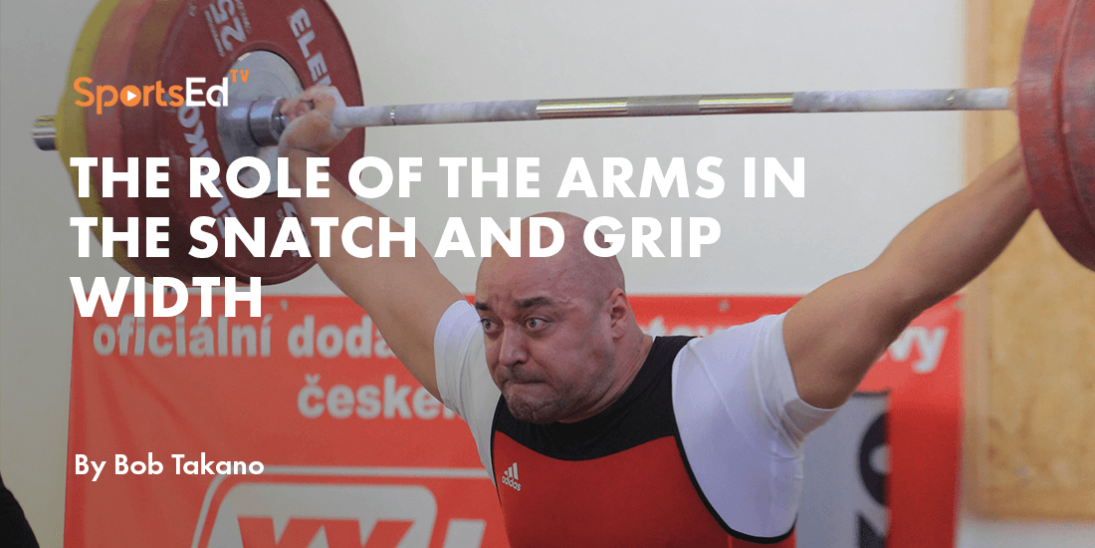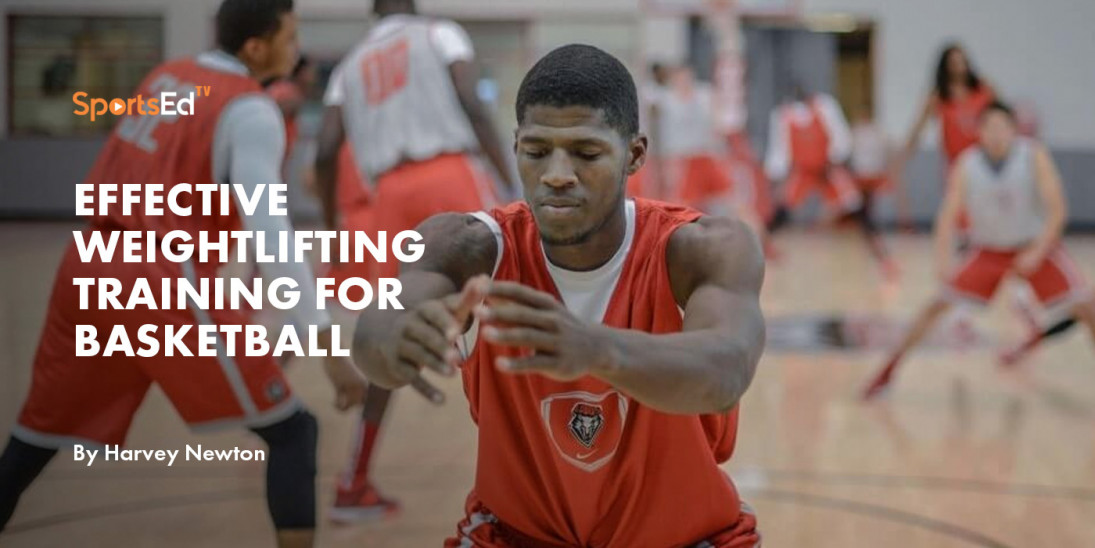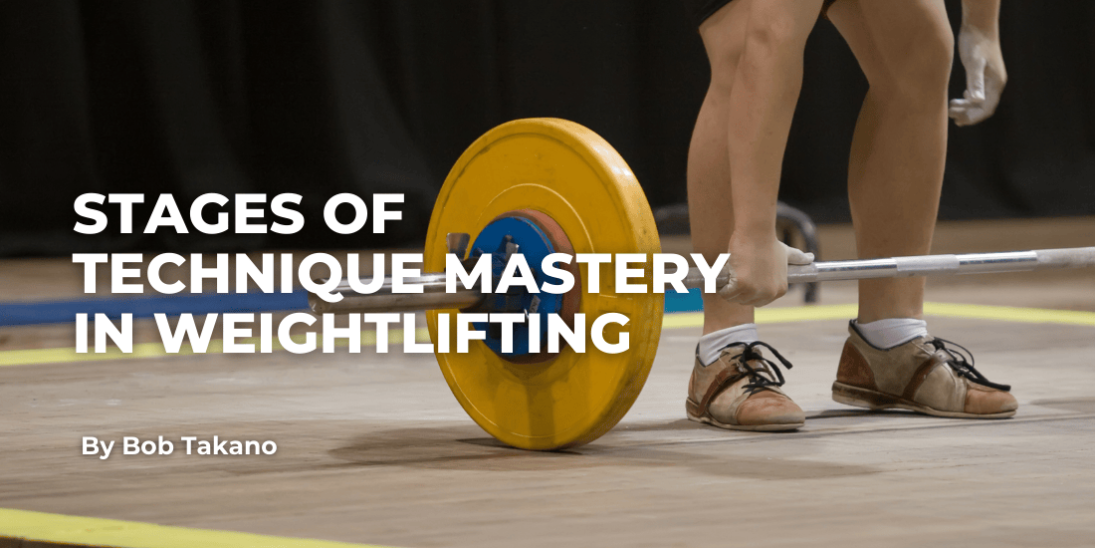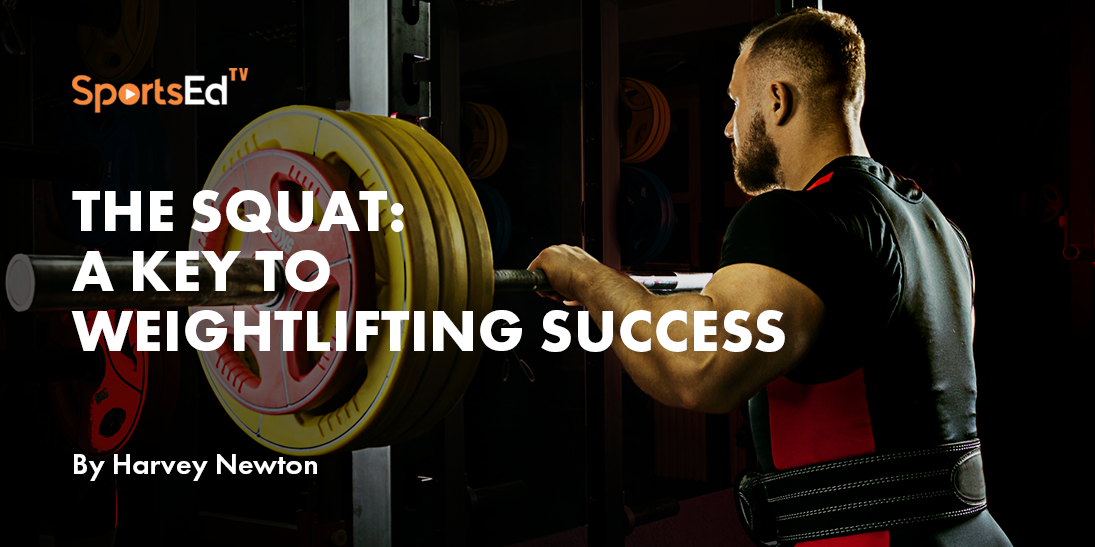Weightlifting
Welcome and thanks for visiting...

SportsEdTV Talks to Leo Totten
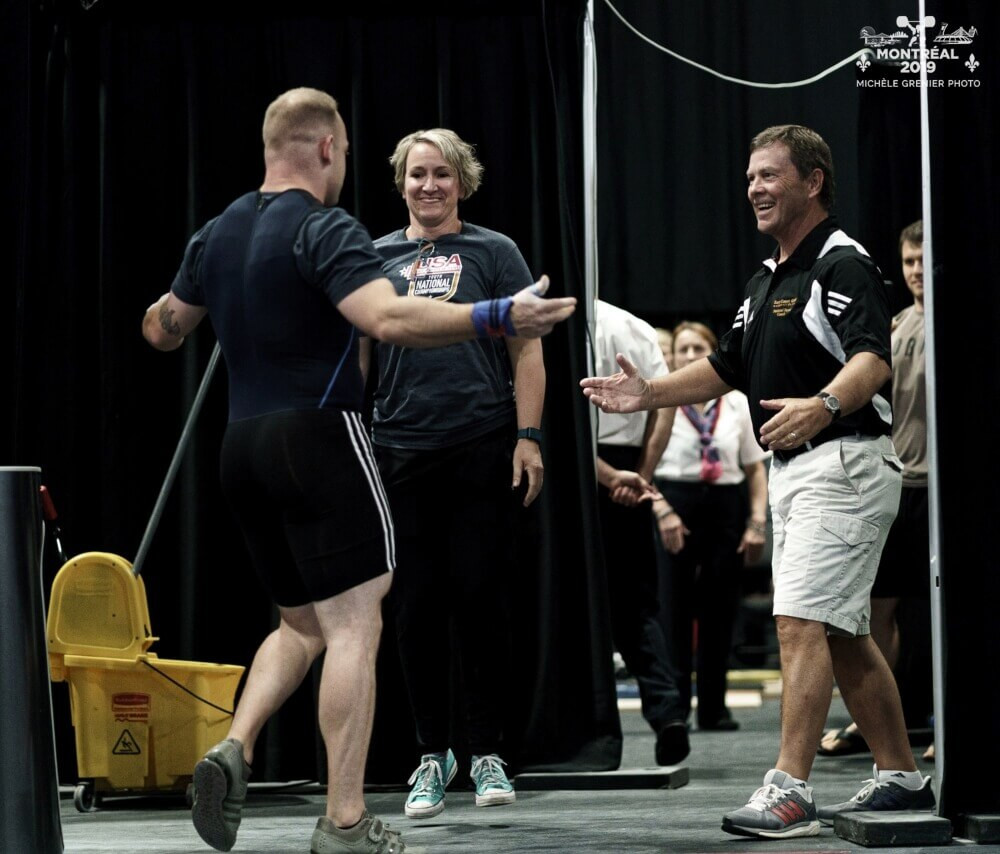
Coach Leo Totten recently sat down and shared his vision on weightlifting, strength training, and coaches’ education with Harvey Newton. Coach Totten has had a long and successful career as an athlete, a coach, an administrator, and an educator. He can be contacted at https://www.tottentraining.com/ or on Facebook.
The following is an edited version of the interview; the entire interview is available by listening to the one-hour podcast.
HN: Leo, you and I've been in the sport for a long time. I won't give any exact numbers.
LT: That's good.
HN: Please let the followers of SportsEdTV know of your background as a weightlifter, as a coach, and as an educator.
LT: First, my career as a weightlifter. I bought my first set of York weights when I was 12. York was about an hour from my house. I saw the weightlifters at the time training and I was just intrigued. It was Bob Bednarski, Tim Garcia, Tony Garcy, and Rick Holbrook, all those guys. I was this puny little 12-year old watching these guys lift and man, that was really cool.
After watching them, along with reading Strength & Health Magazine, I pretty much taught myself. I just basically learned the lifts from those magazines. Tommy Kono's series, the ABCs of Weightlifting, the Iron Grapevine, the Lifter’s Corner, really piqued my interest in weightlifting. I coached myself. I didn't have a coach and just kind of learned because I was fascinated with it. Going through high school I knew I’d really put on some muscle.
In high school, I competed in soccer, wrestling, and gymnastics. Lifting made me a better athlete. I competed for 17 years, ending with the 1984 Olympic Trials. I started teaching after graduating college where I majored in health and physical education. I coached soccer, gymnastics, swimming, and diving, along with tennis.
At the end of my career, I was coaching women's volleyball. For all these sports I used the same process as with weightlifting. I read a lot, studied, went to clinics, etc. Heck, my last year of high school coaching we ended up winning states. Regardless of the sport, it’s all about coaching athletes. I have a passion for teaching and coaching. If you're a good coach, you're a good teacher.
HN: It’s interesting that today there is the possibility of being a weightlifting coach. In our day anyone called “coach” was simply a volunteer. Those times have changed.
LT: However, with the Internet and all the online coaching there are a lot of “experts” out there. Many market themselves really well. I know you and I are probably accused of being “old school.” And we are. We grew up with old school and old school works. That's the bottom line.
HN: It's interesting you mention online coaching. We have a blog from Bob Takano whose Los Angeles gym has had to temporarily close for the pandemic. I know he's not a fan of online coaching. For some sports, it works well, but that's another topic, another day. We at SportsEdTV have attracted a worldwide following. Many folks are interested in how to get started in weightlifting. As you know, we are a free, online resource that provides the greatest amount of information on dozens of sports.
LT: I really appreciate what you have done for years and I've been doing for a while now. SportsEdTV has really taken up the slack to make sure to provide sound, fundamental, proven education that actually works. It's not just the latest fad that's out there.
If I were a new lifter or a new coach just starting out I guarantee Bob Takano would be one that I would check. He's got the vast experience of producing lifters as well as athletes in other sports. I've been doing this for a lot of years, but I don't consider myself an expert. There's so much information out there. The more you know, the more you realize you don't know.
HN: Let’s talk about your Totten Training System (TTS). Please tell us about that operation, how it works, what your goals are. Initially, you focused much of your energy on presenting to strength and conditioning coaches. If someone were to look you up online, what do they learn about the Totten Training System?
LT: I put together all of the knowledge and experience that I've accrued over the years and get as much information out there as possible. I do a weekly article on technique. I want to thank SportsEdTV for providing some of the photo sequences used in my articles. I cover topics whether training for weightlifting or strength training for other sports where weightlifting type training helps.
I think reps and sets need to be as individualized as possible. You must try to understand the psychology behind how everyone works since we won't have all the answers. I really stress this in my courses and blogs. In my courses, I teach how to apply physics and strategies in weightlifting. If you can't really apply that, if you're not getting the point across, then you're not really as good a coach as you need to be.
HN: Do you notice a difference in trying to teach the lifts to strength and conditioning coaches versus weightlifting coaches or those who wish to be weightlifting coaches?
LT: Some strength coaches have more weightlifting background than others. There are some who have zero experience or knowledge. Some may have been taught wrong and their technique isn't very good. Online you might see a high school kid cleaning 300lbs. with everyone in the weight room cheering. But it's the ugliest clean you've ever seen. This is where the strength coach needs to keep things under control. Are students doing the exercise properly? When talking about cleans, I've seen many glorified reverse curls. We have to stress technique that is effective and safe.
Some strength coaches say weightlifting takes too much time to teach. I tell them all the reasons, the values of what we do, and how we do it, how we break it down and try to make it as clear as possible. But if you're not really willing to buy into this, your athletes certainly aren't going to buy into it, so don't do it. It breaks my heart to say that. But at the same time, I would rather they not do it at all than do it wrong. We always evaluate the technique and strategies being used. Will these enhance performance? Is it being done in a safe manner to prevent injury?
HN: You probably saw the recent blog we did on the so-called triple extension.
LT: Yeah, I saw that. That was a good blog, very nice.
HN: Another important component of your career is East Coast Gold. I understand the team is still a key player at U.S. weightlifting competitions.
LT: Yeah, kinda!! It's interesting you bring up East Coast Gold, because I do wear two major hats. Totten Training System is the business that I've put together. I started our team East Coast Gold in 1992. We've been around for a good many years now.
Many lifters approached me about helping them. They were in the same boat I was when I first started lifting, lifting by themselves. Training alone is tough. I started programming for two or three lifters who did well, one qualifying for Nationals. Neither of us had funds at the time. We started with like three or four people on the team. Next thing you know, we're up to 300. It just blossomed.
It's ideal to be in one central spot, like the Wesley Weightlifters or Jim Schmitz and the Sports Palace. But I found there were a lot of people that aren’t in that situation. East Coast Gold evolved into a satellite center system. I try to develop athletes and coaches in an area. We promote each of those areas to try to get more coaches, more athletes, more equipment, and better facilities.
We had about 20 satellite centers at one point. We're at about 12 really active ones right now. We all have the same philosophy and strategy when we get to meet. At the last USAW Nationals where we won both men and women’s team titles, we had 33 lifters representing ECG. Fortunately, as head coach, I don't have to coach all 33 of them! At Nationals we bring along six to eight assistant coaches, but they're the head coach in their own area. I don't take credit for their lifters, but they represent East Coast Gold, coached by their individual coaches. We’ve won some 20 national team titles in the past 10 years or so.
I’ve always wanted to have a central location. Right now, Phil Sabatini and his crew at Virginia Beach, they're actually our main satellite center. We shifted everything over there. I'm the head coach and CEO of East Coast Gold still, but I'm trying to delegate a lot of these duties to the younger coaches and have them take on some of the responsibility. They've been doing an awesome job. Phil is our president and the associate head coach. He's basically in charge, with me doing all the things I can still do.
HN: Well, you have very good help there. And you've had good help over the years.
LT: The team was put together to make each individual better. The interesting part is that I've had people on the team who relocate and may decide to join another team. I'm absolutely fine with that. Some people think I grab up all the lifters that I can and try to build a super team, not true. I'm actually reticent about allowing people to join ECG unless the situation is right.
HN: It sounds like it worked very well. Congratulations on your performances.
LT: Thank you.
HN: The current pandemic conditions are affecting our sport, and may for the foreseeable future. There are cancellations of meets, training, coaching courses, etc. We see the 2020 Olympics postponed for a year. How is this being handled?
LT: I've had to postpone two USAW L1 level one and one L2 courses. USAW’s JP Nicoletta must be pulling his hair out. He's been doing a great job with this. We've moved things back about three months and will wait to see if the new dates work.
HN: I saw something at USAW about online L-1 courses. Is this practical?
LT: I understand the rationale behind it. I have to learn more about it before I'm really convinced. I've been teaching these courses since the mid-‘80s. The big takeaway is the hands-on part. How do you really replace this? I haven't had a chance to examine how USAW is doing the practical part.
People need to be patient; everything is on hold right now. I was supposed to co-run our big East Coast classic April 4 in Philadelphia. We moved it back until July 18th. We need to be smart about that sort of thing. USAW is trying to really do an outstanding job of accommodating everybody's needs.
One of the reasons why we had our meet scheduled for April 4 was as a last chance qualifier for Nationals. As of now, Nationals are still on, but that might change. USAW has gone to an online, virtual competition where you video yourself getting weighed in, then send in your three snatches, your three C&J’s, and national level referees from USAW judge. Those totals are used to qualify. That sounds like a great idea, I hope it works.
HN: This may lead to something in the future. Bridget Raach in Washington State has proposed this over the past couple of years. And she did quite a bit of groundbreaking work on the subject. Can we put together online competitions? I don't think you could do it with a large participant list, but you certainly could do it between clubs. It's a 21st-century version of what we used to see with the Teenage Nationals or the so-called Junior Nationals (American Open). In the ‘60s we had geographic sectional meets on the same day, results were sent in, and we waited to see the final placings.
I see that the Collegiate Strength & Conditioning Coaches Association (CSCCa) still plans to meet this spring. You normally go to this conference, do you not?
LT: Yes. I represent Totten Training Systems and Amplify Sports and Wellness. I get to hang out with the Dartfish guys like Victor Bergonzoli. It's great networking with the other coaches and I'm hoping it's still a go.
HN: Leo, you've been a USA staff member on two Olympic teams. What's your kneejerk reaction to the postponement of at least a year for the Games and what it does to an athlete?
LT: It causes different reactions to different athletes, depending on where they are in their careers. Many athletes are saying the same thing: that this is the best decision to make. But, how do you prepare for your trials? How do you do your preparation when you're not allowed in the swimming pool or weight room?
There may be athletes in other countries where the Covid-19 virus is being ignored and training has not been interrupted. We need a level playing field. I feel bad for the athletes at the ends of their careers. Think of somebody like gymnast Simon Biles. She's pretty old for a gymnast, but she's still kicking butt. Can she continue that for another year? The way it's looking, probably yes.
HN: There are no 2020 Olympic Trials for weightlifting, correct? It’s international rankings, Robi points, etc., right?
LT: Yes, it's a very complicated system. I remember the Olympic Trials were a big deal as a separate event. It was cool to say, I competed in two Olympic Trials. It's a shame that that's been taken away. But we get to change with the times.
HN: Speaking of international events, you know that SportsEdTV has quite a broad international following. We have a number of folks, especially in India, who are tuning into what's going on at the site. People unfamiliar with weightlifting are enthusiastic about what they see. They're asking basic questions of how do you best learn the sport, how long does it take? Of course, we also get some bodybuilding questions like, how can I get big muscles?
Leo, what's your advice to someone who wants to learn how to snatch and clean and jerk? Please address that from both the U.S. perspective and also someone in an undeveloped part of the world. They have access to a computer and SportsEdTV.
LT: It’s great that they're using SportEdTV as a resource for their questions. I would like to think Totten Training Systems is a good resource, as well. We could certainly inform them about all the experience that we've gained. Anytime I do a clinic or a seminar I say there's a lot of great information out there, but you just have to know where to look. It could be different books or websites. People need to know where that stuff is because everybody has different interests. It depends on the situation. I do most of my stuff nationally, so I would love to get more involved internationally.
HN: One no longer can subscribe to a magazine that gives much information on weightlifting. You mentioned starting at age 12, as did I for the most part with general training. What are the keys to instruct a 12-year old in weightlifting? What sort of emphasis would you place on their training?
LT: There are a lot of factors involved. Start by creating a foundation. I had a dad tell me, “My 12-year old son is a man. He’s a good baseball pitcher and he's going to get a scholarship. You're a really good coach. Can you write him up a program to take him to that next level?” I think dad thought I could go to the filing cabinet and pull out a workout. But instead, I just started asking questions, like “Is he right- or left-handed? Is he mature? Does he play any other sports? Does he play baseball year-‘round?”
I erred in waiting to ask the last question, which should have been the first question. “Does he really want to do this?” Dad, of course, said “yes.” I spent two hours making up a six-month plan, scheduling training around all different things. The kid managed one workout. He thought it was too hard and found something else online.
But getting back to your question, first build the foundation. Make her or him an athlete first. You know why? I taught high school for a bunch of years. It was really frustrating for me to have 9th and 10th graders who couldn't even skip across the gym, something that should be taught in 1st or 2nd grade. Know how to skip, how to gallop, how to carioca, etc. Can they do 10 good push-ups or five good pull-ups?
Do bodyweight stuff, become a good athlete first, and then we'll talk about strength training. Start with deadlifts, squats, presses, and bench presses. You could teach them to snatch and clean-and-jerk technique with light weights.
HN: Very true. If the emphasis is on too much weight too soon, the technical skills will never be gained. And it's going to be very frustrating for someone who is capable of lifting greater weights but can't do it. You and I are on the same page with that one.
LT: You can't learn the technique with too heavy weights. It's as simple as that.
HN: This has been a great interview. What more should SportsEdTV viewers know about Leo Totten?
LT: Thank you, as I'm not very good at marketing myself. I'm trying to get better at marketing TTS and the work I’m doing in conjunction with Amplify Sports and Wellness for about the past three years. We provide opportunities for more education with good, solid online training, by good, solid, experienced coaches.
All of our online courses are good for CEUs. We seek to involve as many strength and conditioning coaches as possible and give them opportunities of get professional credit from home. Coaches don't have to spend time or money to travel to the CSCCa or the NSCA conference where they may only attend a few presentations. Participating in these events costs a lot of money!
I really like what this group is doing. I've been working very closely with them, putting some courses online for them. That all keeps me busy. I’m retired, but I seem to be busier now that I am retired.
HN: Leo, we certainly appreciate your time today. I hope we run into each other sometime soon.
LT: Absolutely. Thank you very much for the opportunity. You and I think along the same lines and we've done a lot of good things, and we both have a passion for what we're doing. I think that shows, and I’d love to keep doing it.


